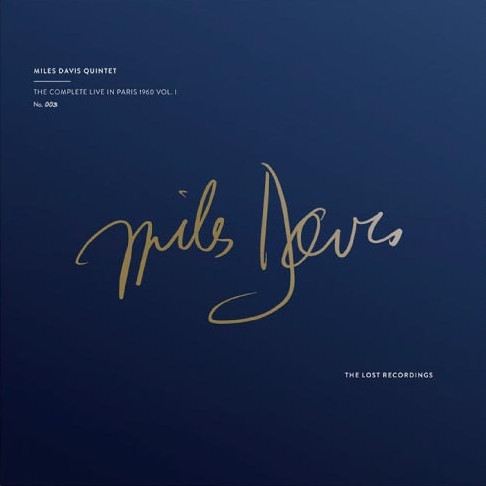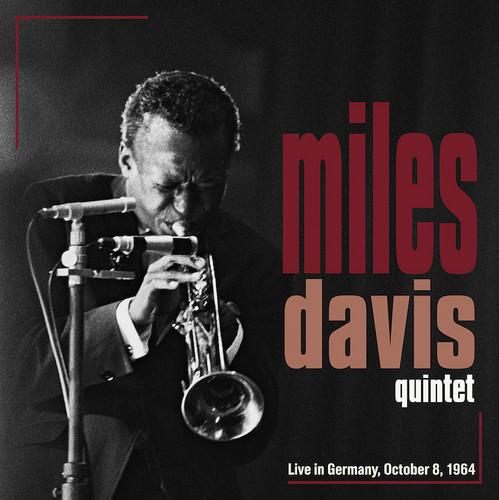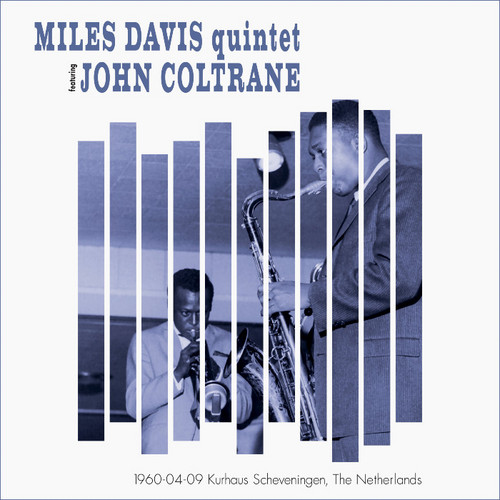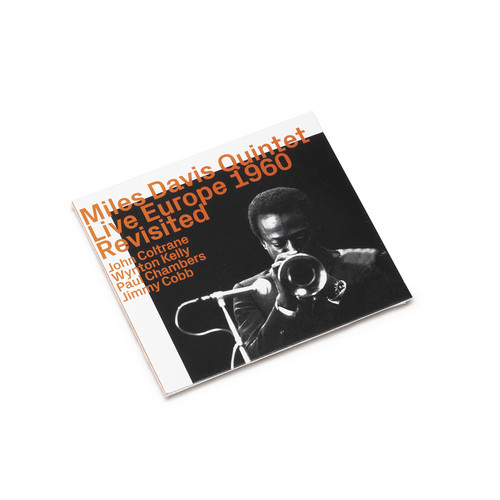Miles Davis Quintet
The Complete Live in Paris 1960, Vol. 1
This is the first time this concert has been published in its entirety. The adventure began in 2022 with a visit to a tape recorder enthusiast in Brittany. It turned out that he had the missing part of this mythical recording. It took us almost two years of traveling through the south of France and the United States to finally find the other original tapes in... Stockholm. We are proud and happy to present this first volume.
In October, on the stage of the Olympia - a legendary Parisian venue th…
Stadthalle, Sindelfingen, Germany October 8, 1964
The Miles Davis historical second quintet with Wayne Shorter - tenor sax, Herbie Hancock - piano Ron Carter, bass and Tony Williams - drums. A perfect coalition of young, creative individuals under Miles' direction. A turning point in the whole history of American Jazz. Recorded live in Germany in October 1964 this double album features hiper- adventurous renditions of classic tunes including Davis originals like "All Blues". "Milestones" and "Walking" and standards like Rollins' "Oleo" and Cole…
1960-04-09 - Scheveningen – The Netherlands
Miles Davis gave two concerts at Amsterdam’s Concertgebouw in 1960 as part of a Jazz at the Philharmonic package, one on April 9 and the other on October 15. Stunning european live performance from Miles with his early quintet featuring the magic of a young and talented Trane. Miles Davis (trumpet), John Coltrane (Tenor Saxophone), Wynton Kelly (Piano), Paul Chambers (Bass), Jimmy Cobb (Drums).
Live Europe 1960 revisited
Temporary Super Offer! 'The Miles Davis Quintet of early 1960 was an endangered, embattled entity. Davis and his frontline foil John Coltrane had been drifting apart stylistically and temperamentally for months. United in the embrace and exploration of modal devices on the trumpeter’s seminal Kind of Blue album released the previous summer, bandleader and sideman were increasingly at odds as to where to go next with the celebrated innovations.' - Derek Taylor



